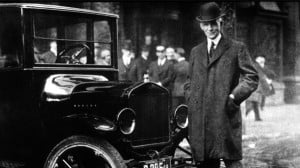There are numerous ways to measure success for a specific company. Whether it is pure revenue based, maximizing capacity, or providing the best quality, each company has its own specific way of measuring its success. The article from industry week discussed the dangers a company has when they use financial-based planning. One example the article gave when discussing a poor financial measurement was inventory. In the world of accounting inventory is considered a current asset. A current asset relies on liquidity and more specifically so being able to convert into cash within a year. The problem with that definition is that it relies on the fact the inventory will eventually be sold. The article stated that, “High inventories therefore mean longer cycle times, longer lead times and less responsiveness to customer needs.” That quote essentially means that the more inventories a company has the ability to change becomes weaker.
Cheap offshore labor as a method as cost savings was also mentioned as being expensive. In the books, cheap labor looks attractive as costs are being minimized and more products are being able to be made. However, with off shoring come defective goods. In my own experience, anytime I order something through Amazon which I know is coming from China I am taking a risk. 50% of the time my order will be completely defective. If not defective, the quality will be sub-par. That level of quality cannot be measured by a financial metric and as a result is not taken into account with valuating success on a revenue based level.

The measures to which a company should measure their success as the article states (and I agree as well) are the three KPIs: Time, Material, and Energy. Henry Ford was a strong component of these measurements as he believed, “time, material, and energy are worth more than money because they cannot be purchased by money.” Taking into account that belief, there then becomes four major points consulted when making decisions and improvements.
1. Waste of the time of people
2. Waste of the time of things
3. Waste of materials
4. Waste of energy
All four of those points touch on the certifications we have been talking about in class. While the six sigma is not discussed in the article, concepts of lean manufacturing are present throughout. In addition, ISO 14001 certification is mentioned. An example is given that it is not only wasting raw materials it is also wasting the scrap materials. Ford specifically showed this method that even though back in his time he could have thrown scraps in the river he instead decided to use it to make something else. This allowed him to maximize raw and scrap materials which led to cost savings. In accounting, and financial reporting that is never take into account. Through this article I really understood that while financials are important that should not be the only measurement used to determine a company’s success.
1.) What do you think is the best way for a company to measure success?
2.) Are resources such as time, energy, and materials equally important? Or does one stand out from the rest?
3.) What are some of your own personal experiences when ordering goods from overseas?
http://www.industryweek.com/leadership/when-finance-runs-factory?page=3